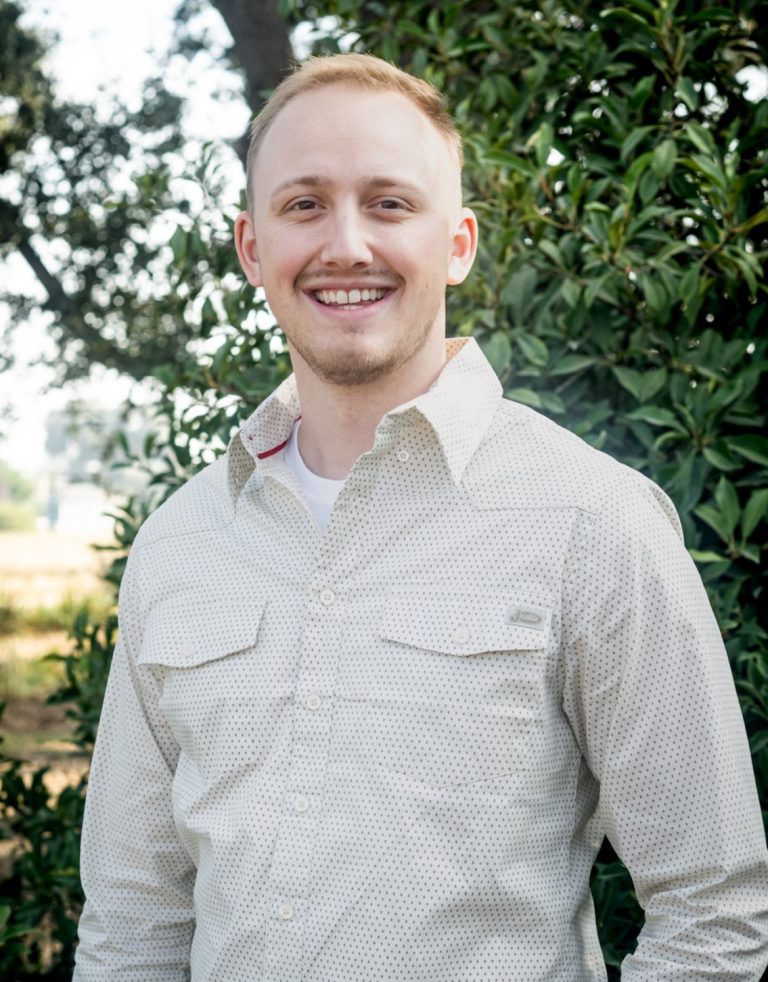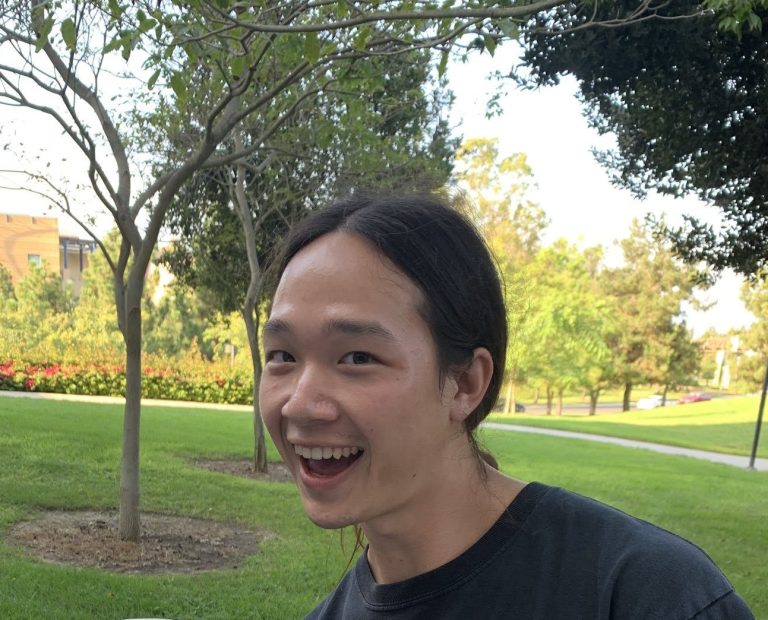California Community College Internship Program (CCCIP)
2025-2026 Applications closed.
The California Community College Internship Program (CCCIP) is a year-long program that provides qualifying graduate students interested in teaching the opportunity to gain valuable professional experience in a community college setting. Participating graduate students can expect mentorship from current community college faculty, focused training and professional development, opportunities for in-classroom observations and teaching experiences, and other experiences aimed at preparing students for a community college faculty career.
Starting in the 2025-2026 academic year, the CCCIP will be open to Ph.D. and M.F.A. students at UC Irvine, UC Riverside, UC Davis and UC Santa Cruz all disciplines (excluding self-supporting programs*). Students must be enrolled full-time, be in good academic standing, and have advanced to candidacy prior to starting the program in summer 2025 Interns will receive a $7,500 fellowship for the summer, during which they will engage in specialized training focused on course design, inclusive teaching, and career development.
*Note: this program is not open to students in self-supporting programs. For UCI students, you can review a list of self-supporting programs here. For non-UCI students, please check with your institution if you have questions about whether or not you are in a self-supporting program.
Ready to learn more? Attend our Information Session on Thursday, April 3, 2025 at12 PM (event held virtually). Register for the event using this link.
Program Requirements:
- Completion of all training (approximately 35 hours to be completed during Summer 2025):
- Virtual, Asynchronous Training:
- California Community College Vision Resource Center Trainings
- “I Don’t See Color, I Just See People: Becoming Culturally Competent”
- “Playing Behind a Screen: The Implicit Bias in Our Colleges”
- Canvas: UCI DTEI Certificate in Teaching Excellence (may be waived if already completed, or can show completion of a comparable program)
- California Community College Vision Resource Center Trainings
- Virtual, Synchronous Training
- July 22, 2025, 1-3 PM: Introduction to CCCIP and Introduction to Community Colleges
- July 24, 2025, 1-4:30 PM: Community College Career Development & How to Interview for a Full-Time Community College Role
- July 29, 2025, 1-3 PM: Teaching and Diversity Statements
- July 31, 2025, 1-3 PM: Anti-Racism in the Classroom
- August 5, 2025, 1-3 PM: Trauma-Informed Approaches
- Internship commitment of at least two quarters, with fall quarter required.
- Submission of an Individual Learning Plan that outlines all required and desired internship activities prepared and reviewed by the intern and community college faculty mentor.
- Attend community college orientation (August)
- Observe class with faculty mentor (10 hours over the course of the internship) and complete Observation Reflection Assignment
- Meet regularly with faculty mentor
- Lead one lesson/Class meeting and complete reflective assignment
- Attend a department and academic senate meeting and debrief with mentor
- Enrollment in two to eight (2-8) units of internship or course credit at home institution per quarter of participation.
- Attendance at Fall, Winter and Spring quarter online cohort meetings.
- Submission of post-program evaluations by both the intern and mentor.
Application Process
Applications for the 2025-2026 CCCIP open.
Applications will be reviewed based on perceived benefit participation will have on the applicant’s career goals, clear communication of why the community college setting is ideal for the applicant, and a demonstrated commitment to equity, inclusion, and belonging in and outside of the classroom. Students who do not have experience at a community college as a staff or faculty member are encouraged to apply.
The application will request a variety of information about the applicant, insightful responses to three short-answer questions (max. 1,600 characters), an up-to-date curriculum vitae or resume, and support from their home institution advisor.
NOTE: Advisors will be sent a form for them to indicate their support of the applicant, after the applicant has submitted their complete application.
Questions about the CCCIP can be sent to cccip@uci.edu.

Hear From Past Interns
Megan Cole
UC Irvine Ph.D., English, 2024
Over the course of a year, CCCIP showed me what being a community college professor would really entail — that is, not only teaching, but designing an inclusive curriculum, participating in shared governance, building on-campus community, earning service credit, and so much more. My CCCIP cohort and coordinators comprised a wealth of knowledge about the particularities of teaching at community colleges, as did my incredible mentor (shout-out to Kurt Meyer at Irvine Valley College!) who graciously shared his classroom with me and gave me the chance to teach and learn alongside him. On a practical level, my mentor and CCCIP coordinators also helped me craft and hone my job materials, practiced with me when it came time for interviews, and celebrated with me when I secured my current position as an assistant professor of English at Victor Valley College. I’m so grateful to have taken part in CCCIP and would highly recommend it to anyone considering a future faculty career at a California Community College!

Elliott Vest
UC Riverside Ph.D., Mathematics, 2024
I cannot say enough how fortunate I feel to be a part of CCCIP. I was paired with my mentor, a community college professor from Santiago Canyon College, who gave invaluable advice about navigating the community college setting and applying for jobs. With my mentor and the assignments through CCCIP, I learned the leading teaching strategies that community colleges desire. I also became more aware of the push for Zero Cost Textbook classes, and I was given access to many open educational resources. More than anything, I learned the value of seeking out chairs of departments where I wanted to apply. This was a requirement of the program, and I found that the math departments I reached out to through CCCIP were also the departments that gave me interviews. Because of this, I was able to secure a full-time, tenure-track position at Porterville College: my dream job!! I know without a doubt that this would not have been possible without CCCIP.

Adam Chin
UC Irvine Ph.D., Logic and Philosophy of Science, 2024
Coming from a very R1-focused department, I felt I had little support or preparation for finding a teaching-oriented job. The CCCIP provided that support and so many resources which I dearly needed. Perhaps most important were all the details of how applying for a community college was different from applying for a research-oriented position and where to look (and who to contact) to find jobs. Moreover, the program’s requirement that we meet not just with a faculty member in our discipline, but also folks at different stages of the tenure process showcased the unique challenges and opportunities presented to CC faculty. That, alongside the classroom observations, got me more excited for a CC position than I had expected. As a tenure-track faculty at a California CC, I know the CCCIP was invaluable in helping me get where I am and feel as comfortable as I do in my position. Even if you think the CC system is not for you, or you’re skeptical of all the buzzwords and lack of real substance in most pedagogy training, I think the CCCIP is still worth it not only because it forces you to put together job materials (which will be useful for non-CC jobs–sometimes even more than for CC ones!) but also because it helps you forge networks of support both within UCI and outside it.
